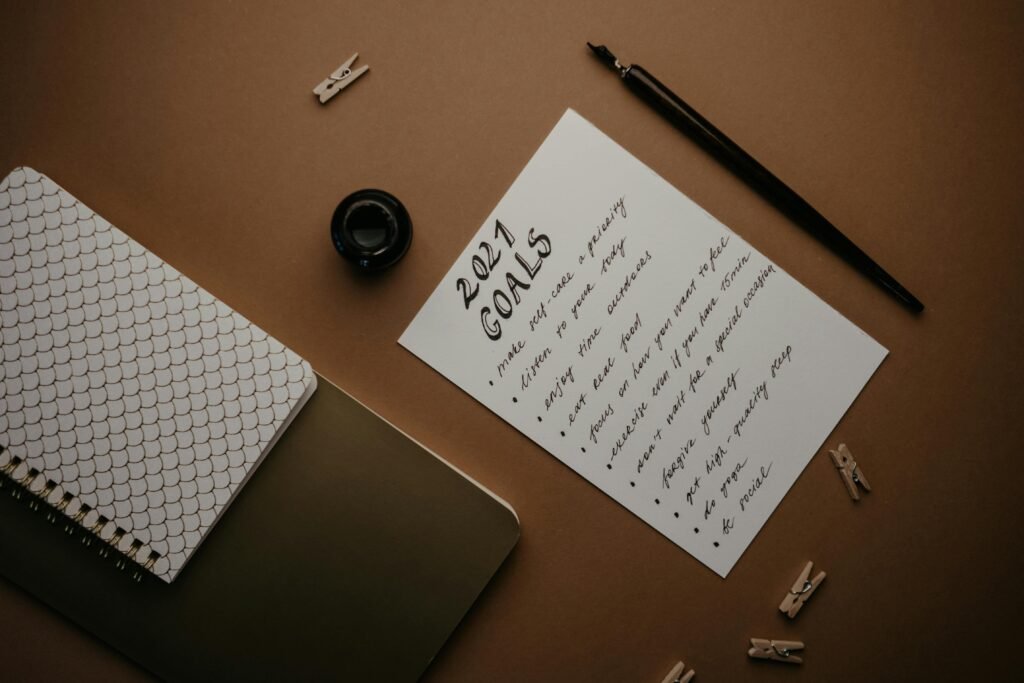Photo Credit (Pixabay)
Despite wearing a toughguy leather jacket and smoking cigarettes, Makwa (Phoenix Wilson) has the soft, doughy features of a preteen kid. He is an emotionally inarticulate knot of coiled wrath who has alternately been abused and neglected by his father. Cruelty is an acquired trait. Indigenous American writer-director Lyle Mitchell Corbine Jr.’s gripping debut picture revolves around the notion that trauma survivors are doomed to repeat the cycle. Makwa, a young Ojibwe boy who lives on a Wisconsin tribe, commits a horrible act in the movie but gets away with it. He has changed when we see him as an adult, this time shown with cold disinterest by the mesmerizing Michael Greyeyes. He has a blonde wife, works in an office, and lives in Los Angeles. He has tried to distance himself from the culture he was raised in. Generational trauma, however, leaves a mark. Hans Simran
The Follower
The Disciple by Chaitanya Tamhane was just another piece of Netflix’s content tsunami this year, and it didn’t receive the attention it deserved, despite receiving a lot of critical acclaim throughout the 2020 festival circuit and executive producer Alfonso Cuarón’s stamp. As it illustrates the conflict between art and business and how unwavering devotion to one’s work may result in a life of sacrifice and frustration, there is some art-reflecting life here. This might sound depressing, but the journey is utterly captivating. A large portion of that can be attributed to the particular skill that our young lead, Aditya Modak, is attempting to acquire: a highly challenging kind of Hindustani classical music. Modak’s numerous foggy twilight motorcycle trips across Mumbai while listening to tapes of an austere master as Tanpura drones play are the best scenes. With an unpredictable, volcanic ending, The Disciple finally pits the triumph of self-preservation against the cinematic clichés of hard work and accomplishment. Hoffman, Jordan
Anne at 13,000 feet
Playing a character who has a tendency to push others in the opposite direction, Deragh Campbell is a magnetic force. Her Canadian filmmaker Kazik Radwanski’s modest yet thrilling picture of Anne, a lady in crisis, has already earned rightful parallels to Cassavetes and the Dardennes’ for its straightforward, realistic, and unquestionably loving treatment of the type of person who is frequently purposefully overlooked. In informal and modest vignettes, Anne attempts to control her erratic emotions while working at a daycare, hosting a new boyfriend, and attending her friend’s wedding. Additionally, she is preparing for a skydiving adventure that serves as a powerful, if not particularly subtle, metaphor for the character’s mental state. Her conflicting desires to hide in a corner and finally be noticed are driving her to fly through life like a bird spiraling out. As if to make it hard for us to turn away, Radwanski maintains the camera at an oppressive distance from the face of his talented colleague. Leonard Simonpillai
Well-groomed
Few movies have as fully and profoundly impacted me as Groomed, which depicts the ebb and flow of sexual abuse’s consequences. The Discovery+ documentary moves between two registers: eddying ambiguity, which is the filmmaker Gwen van de Pas’s interpretation of her recollections of having sex with her swim instructor in her twenties when she was twelve, and certainty, which is the accounting of the meticulous grooming process. Van de Pas goes back to her childhood bedroom in Holland to find his letters to her, which is one of the most intense scenes I have ever seen. The emotional stew is evident and painful, including yearning for proof and anxiety that the contents would confound her. When she discovers the obscenely sexual letters, to her mature surprise, the real-time justifications of her cultivated mind are even more shocking. Groomed’s revealing vulnerability shows how self-undermining confusion is the long and intentional tail of abuse, not a personal failure to see clearly or a repudiation of what happened, even though not every aspect of the video is effective. Horton, Adrian
The Justice Riders
This year, the Oscar-winning Danish film Another Round, starring Mads Mikkelsen, was the only contender. There were two of them, which is unfortunate. A dazzlingly clever blend of screwball humor, therapeutic drama, metaphysical inquiry, and yes, brutal action, Riders of Justice could easily be mistaken for a Taken-style vengeance thriller at first sight. Mikkelsen portrays a seasoned Afghanistan veteran who must raise his teenage daughter when his wife dies in a train accident; unfortunately, he is an emotional void. When he encounters three dysfunctional tech geeks (Nikolaj Lie Kaas, Lars Brygmann, and Nicolas Bro) who think the crash was not an accident, things start to get interesting. That is only the setup. It’s one of those stories that seems to be scattered everywhere yet somehow fits together nicely, resembling a classic Coen brothers comedy. It’s wayward, unpredictable, and frequently hilarious. It’s a Christmas film, too. Steve Rose
The Future World
Prior to her feature debut with The Sleepwalker, Mona Fastvold gained experience in feature directing through acting and screenwriting (alongside her partner Brady Corbet). Her self-assured, captivating approach is on full display in her second film, the wonderfully literary romance The World to Come. The film, which is based on a short tale by Jim Shepard, takes place in rural New York in the middle of the 19th century, with its breathtaking scenery and harsh environment. Abigail (Katherine Waterston), the farmer’s wife, and Tallie (Vanessa Kirby), her new neighbor, become friends right away before becoming cautious lovers. Even though the doomed-love scenario is somewhat recognizable, this movie has a new feel to it because of the “astonishment and joy” that the romantic leads unexpectedly encounter. In this covert affair, Waterston and Kirby are very good at avoiding the maudlin to something more significant. Daniel Blumberg’s captivating soundtrack and Andre Chemetoff’s energizing photography deserve recognition as well. Hutchinson, Pamela
The Orient’s Witches
It turns out that a table of friendly Japanese grandmothers chit-chatting over lunch fifty years ago were extraordinarily gifted athletes who inspired a nation. A group of textile factory workers put together an incredible 258-game winning streak in the 1950s and 1960s, which included an Olympic gold medal and a world championship. This led to a volleyball manga and anime craze in Japan and other countries.
Electronic music highlights the monotonous, captivating nature of industrial work and unrelenting exercises by a near-fanatic coach in Julien Faraut’s documentary The Witches of the Orient, which evokes an enticing blend of classic anime and archive sports video. The 1964 Tokyo Olympics, the first to feature volleyball and a show of Japan’s recovery from the atrocities of war, serve as the film’s climax. With the help of Faraut’s skillful editing, anime-inspired elements, and amazing musical selections, the athletes themselves tell this amazing, inspirational story of tenacity, perseverance, and willpower. Macabasco, Lisa Wong
The Final Duel
Few movies crashed, burnt, and then completely vanished with as much stench as Ridley Scott’s star-studded $100 million epic The Last Duel during a year of hand-wringing “but what does this mean for Hollywood?” disasters. There is something far smarter and more subversive than one might expect here, something that should have had everyone talking on release instead of the stinging silence it inspired. Audiences stayed away in droves (it stumbled to just $30 million worldwide), and its Oscar chances drastically failed (Disney hasn’t even bothered with a campaign). Few, if any, have been able to accomplish this as successfully as the slowly growing number of more recent period films that have noblely attempted to give themes that have historically been depicted in binary, male-skewed terms a more modern perspective. Through changing points of view, we learn that Marguerite de Carrouges (a remarkable Jodie Comer) is not only telling the truth but that every man in her life, including her hideous husband (a repulsive Matt Damon), is taking advantage of her. Marguerite was accused of lying when she accused a French squire (a repulsive Adam Driver) of rape.
The movie serves as a conscious correction to the way history has portrayed Marguerite’s story—for centuries, her account of sexual assault has been accompanied by an accusatory question mark—as well as to a genre of movies that consistently elevate men and devalue women (no 2021 film has been as fully committed to such a depressing “men are trash” worldview). It’s completely believable but fascinatingly gloomy. Lee, Benjamin
Recognizing Features
Alpha men like Guillermo del Toro, Alfonso Cuarón, and Alejandro González Iñárritu do not completely control the Mexican film industry. The eerie Mexican drama Identifying Features, which was directed by Fernanda Valadez for her debut feature film and co-written, co-produced, and co-edited by Astrid Rondero, was the most criminally unseen film of the year. The story, which is based on their 2013 short 400 Bags and was influenced by the terrible 2011 San Fernando massacre, in which drug cartels abducted hundreds of desperate people from passenger buses in the borderlands, centers on a middle-aged woman from central Mexico who embarks on a quest to learn what happened to her teenage son who fled home to attempt to enter the US. Though it brazenly conjures the image of Satan with an utter seriousness that distinguishes it from the horror genre, the film is similar to social-realist folk horror in that it features heartbreak and a vision of true evil. It is a very involved film that is both a cry for assistance and a cry of fury. Bradshaw, Peter
My Home in Acasa
There are undoubtedly many underseen documentaries of all sizes and forms available online, but this Romanian documentary caught my eye since it oddly serves as a companion to the wonderful 2019 movie Collective. The video, which is beautifully shot and incredibly upsetting, tells the story of a Roma family who live in the woods outside of Bucharest before being compelled to move to the city to provide schooling for their children. It captures the advantages and disadvantages of the highly emotional subject of off-grid living and the boundaries of government control. The worst part? The management of the good folks in Collective is the same as the seemingly callous government officials who are forcing the family off their farm. Pulver, Andrew
The House of Night
In addition to directing one of the year’s best films, Passing, Rebecca Hall also subtly delivered one of the year’s least praised outstanding performances in this clever, unexpected take on various haunted-house formulae. It came and went in theaters in August, eighteen months after its successful Sundance premiere, with little fanfare. Being the most current in a series of horror films where sadness is the actual bogeyman, David Bruckner’s film, which was a significant improvement over his successful but less distinctive woods nerve-rattler The Ritual, did suffer from a certain lack of innovation in one respect. Hall, a widowed teacher who can’t quite let go of her husband’s presence in the stunning lake house he built her—possibly because he hasn’t let go of it either—brings a wounded conviction and depth to the concept that has rarely been addressed and played. Guy Lodge
Days
Tsai Ming-liang is not in a hurry to get to anyone. The Taiwanese maestro continues to promote “slow cinema,” in which still images last for minutes at a time, allowing audiences to enter a state of meditative relaxation, in his first feature since 2013. A wealthy middle-aged man (Lee Kang-sheng, Tsai’s longtime inspiration) and a successful millennial (Anong Houngheuangsy, a miraculous discovery) independently go about their everyday lives, with their paths briefly crossing in a moment of intense, private closeness before splitting apart once more. Because we have so much time to digest, we interpret even the smallest gestures as too important to overlook and larger emotional expressions, such as the full-body Nuru massage that momentarily brought these two lonely souls together, as breathtaking demonstrations of connection. Tsai’s work can transcend the brain’s natural tendency to occupy itself with analysis and instead access a deeper reservoir of sensation and experience, much like the cinematic counterpart of calming ambient music. Bramesco, Charles





Leave a Reply